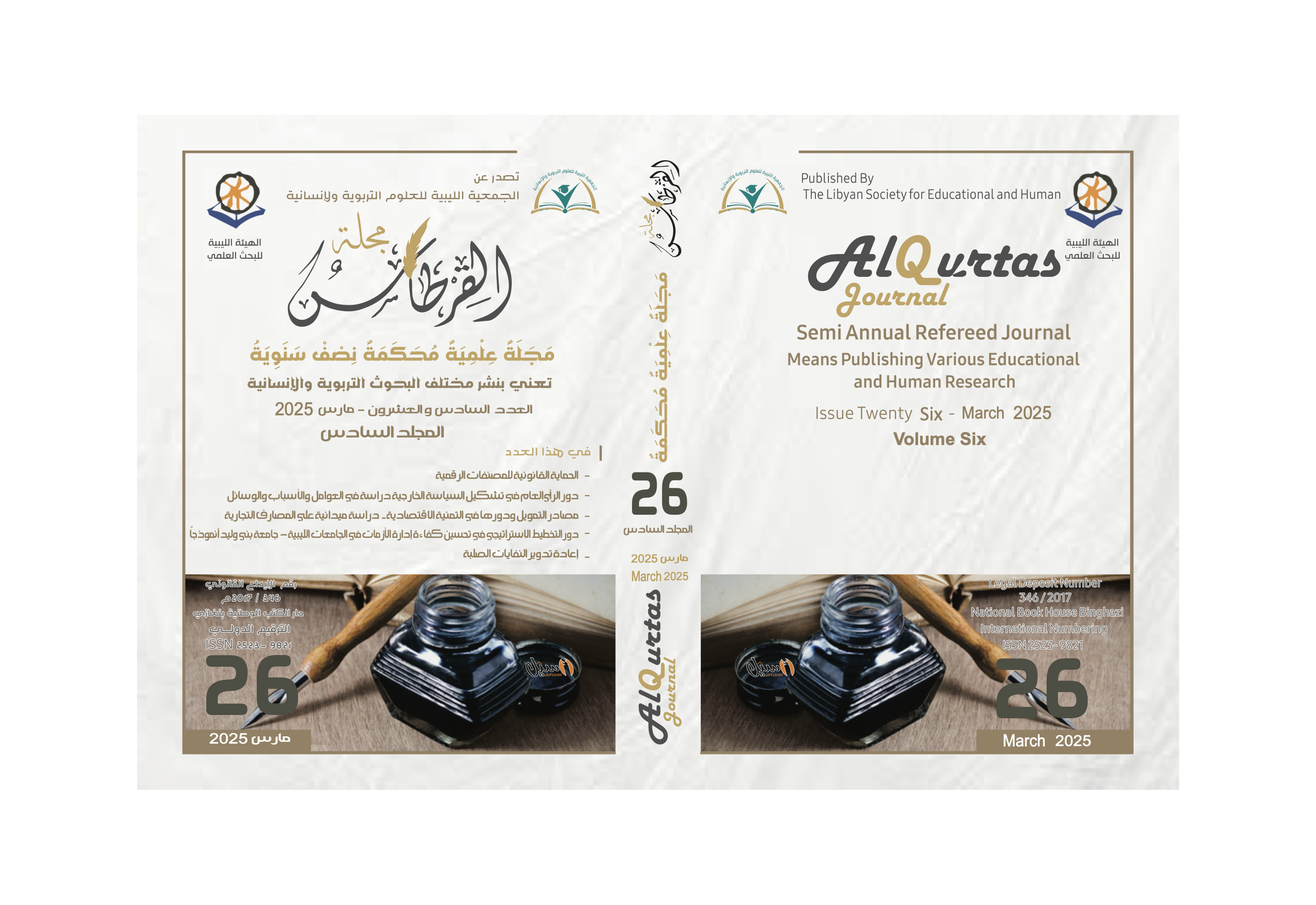النحو في ميزان السليقة
Main Article Content
Abstract
The research discusses the issue of melody in the Arabic language, focusing on the period before the codification of grammar rules. The research reviews the opinions of ancient and modern scholars about the existence of melody in the pre-Islamic era and the beginning of Islam. The aim is to determine whether linguistic violations in that period are considered errors or whether they are part of the nature of the language and the instinct of its speakers. Introduction The researcher believes that pre-Islamic texts are characterized by purity and eloquence, and that trying to trace linguistic errors in them may be a kind of risk. The research reviews some of the linguistic objections that Al-Marzbani mentioned about great pre-Islamic poets, and how these objections may have resulted from poetic necessity or differences in dialects. The research confirms that the Arabs in the pre-Islamic era spoke the language with an eloquent instinct, and that the term "melody" in the sense of linguistic error was not used at that time. Melody in the Balance of Instinct The research discusses the issue of strengthening in poetry, and how some scholars permitted it in ancient poetry, considering it less influential on musical harmony than inflection. The research reviews Al-Marzbani's opinion on leaving the inflection of the word "Mardas" in a verse by Al-Abbas bin Mardas, and how this leaving may be permissible as a poetic necessity. The research confirms that inflection was an innate characteristic of the Arabs before Islam, and that this matter was one of their most prominent features in the pre-Islamic era. The eloquence of the Holy Quran The research proves the eloquence of the Arabs before Islam by the revelation of the Holy Quran in an inflected and eloquent form, challenging them in eloquence. The research indicates that the Quran was revealed in the language of eloquent people, and that the Quranic challenge to them to produce something like it would not have happened if they were not able to understand eloquence. The research confirms that the science of grammar was not known to the Arabs in the pre-Islamic era, due to the soundness of their linguistic innateness. The emergence and spread of the melody The research finds that the melody began in the Arabic language after the Arabs left their peninsula and mixed with other nations. The research indicates that the mixing of Arabs with other peoples led to the infiltration of foreign words and a change in the structure of some words, which affected the integrity of the language. The research reviews the opinions of some scholars who indicated that the entry of the non-Arabs into Islam and their mixing with the Arabs led to the corruption of tongues and the spread of the melody.

